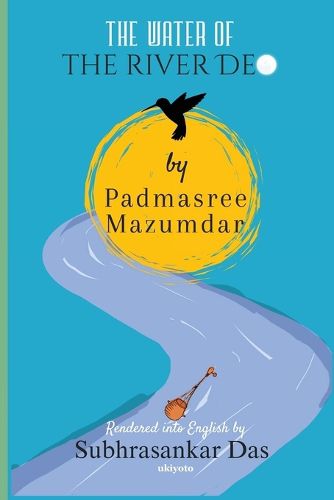Readings Newsletter
Become a Readings Member to make your shopping experience even easier.
Sign in or sign up for free!
You’re not far away from qualifying for FREE standard shipping within Australia
You’ve qualified for FREE standard shipping within Australia
The cart is loading…






This title is printed to order. This book may have been self-published. If so, we cannot guarantee the quality of the content. In the main most books will have gone through the editing process however some may not. We therefore suggest that you be aware of this before ordering this book. If in doubt check either the author or publisher’s details as we are unable to accept any returns unless they are faulty. Please contact us if you have any questions.
'THE WATER OF THE RIVER DEO' by PADMASREE MAZUMDAR is a
magnificent account of the lives of Sylheti people living in North Tripura. The
reconstruction of their livelihood, their inclination to their culture and heritage,
their festivals and folklore, their desire, delight and agony, the effect of emigration
and urbanization...everything is wonderfully portrayed by the novelist. The fates of
common folks are somehow connected to the river. The river is the silent witness
of the circus called life. The river is the divine and the demon. It is the symbol of
contentment and the metaphor of the eternal flight of Mahakaal. Through the
characters of the novel, we explore the plight of relationships, the propensities of
human-mind, the fruit of selfish pursuits, the science latent in superstition, and the
bites of blind faith, politics and dowry system. We marvel at the riddles of Nature.
We feel an urge to transcend the karmic cycle of pain and pleasure, dilemma and
delusion. We feel the river flowing in our heart of hearts.
This novel contains reveries, moments of revelation and repercussion, horror and
nostalgia. The way she describes the landscape or transports the characters into
their worlds of imagination is spectacular. The way she uses the maxims of Khona
or the lyrics from 'Sri Raadhikar Ovishaar' or traditional folk songs to draw a
parallel between the mythological characters and the characters of this novel is
fascinating.
$9.00 standard shipping within Australia
FREE standard shipping within Australia for orders over $100.00
Express & International shipping calculated at checkout
This title is printed to order. This book may have been self-published. If so, we cannot guarantee the quality of the content. In the main most books will have gone through the editing process however some may not. We therefore suggest that you be aware of this before ordering this book. If in doubt check either the author or publisher’s details as we are unable to accept any returns unless they are faulty. Please contact us if you have any questions.
'THE WATER OF THE RIVER DEO' by PADMASREE MAZUMDAR is a
magnificent account of the lives of Sylheti people living in North Tripura. The
reconstruction of their livelihood, their inclination to their culture and heritage,
their festivals and folklore, their desire, delight and agony, the effect of emigration
and urbanization...everything is wonderfully portrayed by the novelist. The fates of
common folks are somehow connected to the river. The river is the silent witness
of the circus called life. The river is the divine and the demon. It is the symbol of
contentment and the metaphor of the eternal flight of Mahakaal. Through the
characters of the novel, we explore the plight of relationships, the propensities of
human-mind, the fruit of selfish pursuits, the science latent in superstition, and the
bites of blind faith, politics and dowry system. We marvel at the riddles of Nature.
We feel an urge to transcend the karmic cycle of pain and pleasure, dilemma and
delusion. We feel the river flowing in our heart of hearts.
This novel contains reveries, moments of revelation and repercussion, horror and
nostalgia. The way she describes the landscape or transports the characters into
their worlds of imagination is spectacular. The way she uses the maxims of Khona
or the lyrics from 'Sri Raadhikar Ovishaar' or traditional folk songs to draw a
parallel between the mythological characters and the characters of this novel is
fascinating.